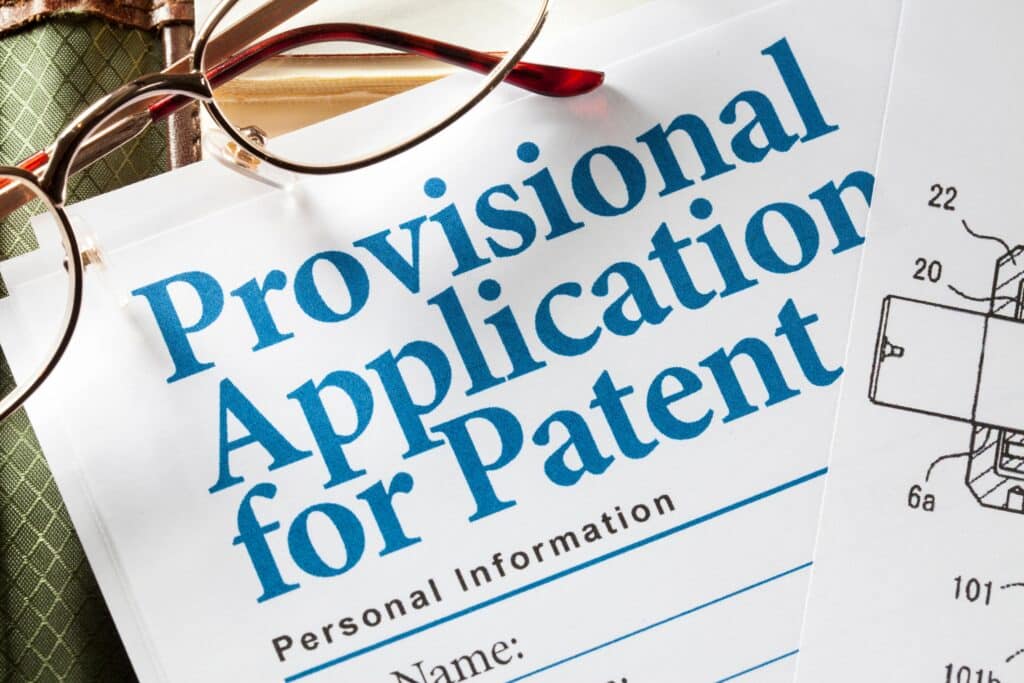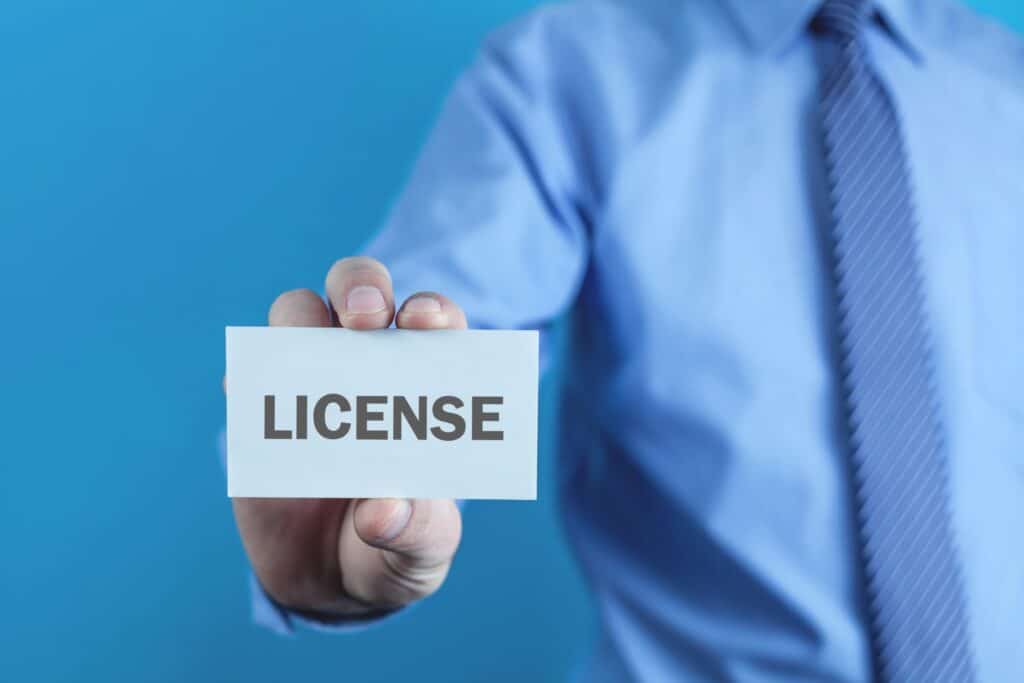
Patents are a practical reality for any business that participates in the development of novel processes or products. And, not surprisingly, patents in estate planning merit special consideration.
They may be accidentally neglected, like trademarks and copyrights, with business owners assuming that passing ownership of the business implies passing ownership of their patents. Patents are also a special case because of their inherent time limits, as you’ll learn about in the video below.
READ THE TRANSCRIPT
Hi. Thanks for tuning in to another dose of Bite-Sized Bits of Knowledge, where we give you meaningful information in a short amount of time. Today we’re finishing up the intellectual property discussion. We’re talking about patents.
Patents are pretty cool. They memorialize themselves in process, methods, designs, et cetera. They’re very heavily used in pharmaceuticals. If you’ve ever heard of the term “generic drugs,” that’s an expired patent, meaning it’s available to everybody to use after the 20-year period expires.
They exist in terms of software. They exist in terms of physical inventions. Predominantly, patents mean that they’re a right of exclusion. You are preventing others from using that which you have created. What you’ve invented. It’s a new invention. Generally, you don’t want to sell your rights here.
As I mentioned in the copyright and trademark videos, you have some common law protection inherently from creating something. But in patents, you don’t. You have a year after you start using it to file either a regular or a provisional patent, or you lose the right. Period. It’s that simple.
A provisional patent is like a patent where it’s not a real patent. It’s like a – I’m sure a patent trademark attorney would explain it much better, but a provisional patent is almost like a preservation of time. It’s like a flag pole that says, “I’m going to file a patent later, but I want to preserve my rights in this filing, which kind of outlines what we’re going to file.” And it preserves your filing data being within that one year period.
There’s also continuations, which you can make a patent kind of extend longer so you can add more to it if you’re very good at what you do.
So patents can be really interesting things. There’s a lot of litigation related to patents. There’s a lot of nuances you really need to understand if you’re going to get involved in it.
Investors typically like to see new businesses that have a patent, although people like me and intellectual property lawyers know that having a patent doesn’t really give you kind of a golden ticket. It’s just the cost of business. You got to have one. You got to try to create a protective competitive moat around you as much as you can. It just might not be as protective as you may want it to be or think it is in the practical reality of patent litigation.
To give you an example of that practical reality, the USPTO is the office that you work with to get a patent admitted. You get a few handfuls of people that are going to look around to see if there’s other things that pre exist or if there are other issues.
And then you get a patent. You’re awarded a patent and you’re very happy. But in practical reality, if you have a patent and you go and you try to approach a Google or an Apple, they’re going to put probably 20 of the smartest Harvard law graduate patent lawyers on it to find a problem, and they might prevail.
So it’s not like a golden arrow or silver arrow that you’re going to just get Google and Apple to buy your patent because you have one. So just understand that it’s the cost of doing business. You need to have one because it protects you more than not having one.
Certainly getting a good lawyer can help to maximize the protections that you’re getting in a patent, but just keep kind of your expectations managed that resources are what they are with these big companies, and hopefully you can prevail in a patent infringement case and it doesn’t take years and years and years of litigation and exorbitant amount of money. But again you got to have it. You just got to have it. If you’re a new business and you can afford to have one you should get one.
The last thing I would say is monetization. Like copyright and trademark, you can sell a patent, you can give me cash, I gave you the patent, I sign those rights over. Or you can license it to others. Licensing can be a term of years. It can be certain jurisdictions, it could be certain types of mediums as I mentioned in the other videos.
For example, when you download software, you’re licensing software. Usually some softwares limit you to like two mobile devices or one mobile device or a computer and a mobile. They’re really controlling the distribution of the product through these licenses and how you have access to it and sharing it and keys – the little serial keys – let you know that you have a valid license. There’s exclusive, there’s nonexclusive. Just like the copyright and trademark stuff.
So I know a lot about this stuff, but I know enough to hire a person who only does this kind of work because you need to have that person on your team. It’s an investment, not an expense.
That concludes the intellectual property discussion. Thank you again for stopping by. Don’t forget to download our free business planning stress test. It’s linked below in the description.Stay tuned for more.
Just to review, patents occupy a special place in intellectual property, because they:
- Protect novel inventions or processes for fixed amounts of time, often ending within a person or business’s lifetime if not renewed
- Do not inherently exist in common-law protection, which is distinct from copyrights and trademarks
- Can be applied for in stages, provisional or full
Let’s go more into the patent space, as well as how you’ll want to account for patents in your estate plan.
Identifying Patentable Products and Processes: Intellectual Property in Your Business
Protecting existing patents in your estate plan may stick out as an obvious move for inventors and other people who consider it their profession to innovate or create. For them, the question of who inherits their valuable intellectual property may easily be top of mind.
The reality, though, is that many businesses contain intellectual property in their operations – property that merits protection, even if they don’t consider themselves to be particular pioneers in a space.
The move here: during your active years running a business, identify and define the intellectual property fixtures of your business. You may realize that your car wash fabricated a unique cleaning shammy to get the job done more quickly and thoroughly. Should you patent that? If you created something functional and unique that makes your business stand out: yes, definitely look into a patent.

The Value of Licensing Your Patents
To continue with our example, if you patent your car wash’s shammy – let’s call it the “Sham Pow” – then that opens up a new commercial world for you: licensing. If you want to get paid when other car washes use a version of the Sham Pow, or perhaps you want to release a line of Sham Pows at Target for the at-home car-washer, you can accomplish that via licensing of your product patent.
And you’ll be motivated to do this, because the moment your patent is approved, the clock starts ticking to its end. You can renew a patent at the end of a couple decades, but that is an active decision and process. For some companies, they’ve been able to commercialize their patent enough to make renewal worth it.
While your patent clock is ticking, you will want to take actions to see what commercial value you can garner from your patent, either through licensing or selling. And sometimes that commercial value is more defensive than proactive – it keeps competing car washes from doing as good of a job as yours, which keeps the customers flowing toward your car wash with its unique product.
You can see how this could stimulate robust innovation among competitors in a field – they are almost literally in a race to make their patents worth it before they expire. You can also see why this exclusivity does need a limit. For example, many of us benefit from the research and development of pharmaceutical drugs when “generic” versions of those drugs are eventually created. “Generic” means that the drug’s patent has expired, so it can be manufactured without the added licensing – which, of course, makes the whole drug price decrease tremendously.

How Patents Fit into Your Estate Planning
If you have active patents and active licensing, even if they are set to expire within your expected lifetime, you can probably guess what I’m going to say here: prepare for the unexpected.
If you pass away unexpectedly and have not specified who owns your patents, their clock will keep ticking as your loved ones go through lengthy probate processes. They may also have to field other litigious conflict, as some associates who helped with a business may feel ownership in that patent. The playing field is often not friendly.
To preserve relationships among your loved ones and business colleagues alike, make a plan for all of the intellectual property in your business, including your patents. And don’t hesitate to get professional guidance through this complicated process. Contact an estate planning attorney today to ensure the details of your tomorrow.